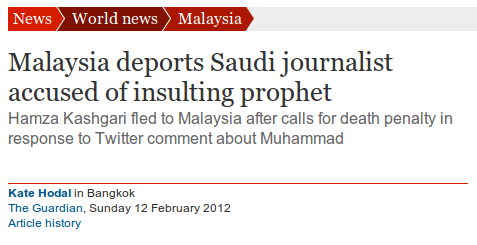The First Amendment and Religion
The title of this blog post is from the First Amendment to the Constitution of the United States of America. The words “Congress shall make no law respecting an establishment of religion,” are commonly known as the Establishment Clause. Together with the Free Exercise Clause, they make up what are called the “religion clauses” of the First Amendment. Though applying only to our federal government until the ratification of the Fourteenth Amendment, they now apply to the individual states as well.
Though there are socially conservative religious groups who wish to make citizens of the United States subject to their own particular idea of religious law, we remain a secular state. The United States is not a Christian nation. The mere fact that the majority of its citizens self-identify as Christian simply does not make it so. Likewise, we are neither a Muslim nation, a Buddhist nation, an atheist nation, nor a Shinto nation.
This “wall of separation,” as Thomas Jefferson described it, protects all citizens. Our government cannot tell you which deity to worship, or to worship at all, or not to worship, so long as your activities do not violate existing secular law. In like manner, individual citizens, companies, etc., cannot tell others what or how to worship, (or to worship at all) as that would violate a person’s free exercise of religion.
Hamza Kashgari
Let me now give one shining example of why I think the separation of church and state is of immense importance in guaranteeing human rights: The plight of Hamza Kashgari.

The headline shown in the image above, Malaysia deports Saudi journalist accused of insulting prophet, is from The Guardian, a British newspaper, though the story was widely reported elsewhere. Hamza had fled Saudi Arabia because of numerous death threats, and a very real fear of being executed by Saudi authorities. He was apprehended by Malaysian police and handed over to Saudi officials, who then returned with him to Saudi Arabia.
What vile crime had Hamza committed that caused the Saudi government to drag him back, quite possibly for execution, and prompted over 13,000 people to join the Facebook page “The Saudi People Demand the Execution of Hamza Kashgari”? Hamza Kashgari had insulted the prophet Muhammad.
Hamza’s “crime” took the form of a post on Twitter. On the birthday of Muhammad, Hamza Kashgari had the temerity to post this to his Twitter account:
“I have loved things about you and I have hated things about you, and there is a lot I don’t understand about you. I will not pray for you.”
Yes; that’s what caused thousands of people around the world to call for a 23-year-old reporter to be executed by the Saudi government. The calls for his death are indicative of the type of activity fostered by a state religion. One common thread I see in many religions is the idea that religious teachings are never to be questioned. To question “the faith” is one of the foulest offenses they can dream of.
This is exactly the kind of event I think of when an ultra-conservative politician starts in with the “I want my country back” bullshit. The next time you hear a politician or a minister of any faith start making claims about getting the United States “back on the path” of their particular religion, I want you to think about Hamza Kasgari. I want you to imagine what it might be like if your particular views about religion don’t quite line up with what the state has in mind for you. I want you to imagine fearing for your very life simply because you don’t believe exactly the way someone else says you should. I want you to tell that politician or minister that if they try to put one finger on that First Amendment, they’re going to have a fight on their hands.

Recent Comments